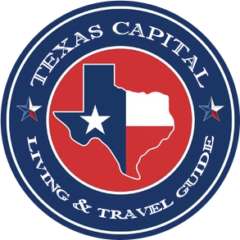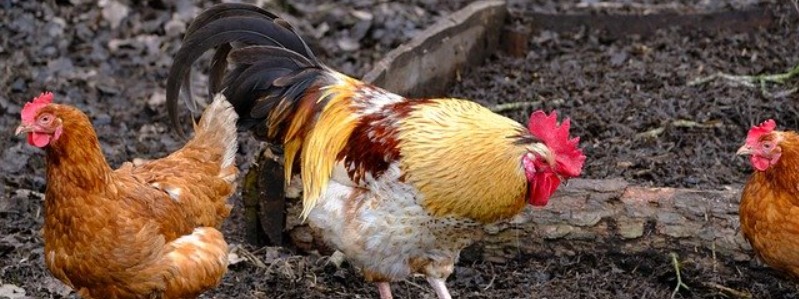This page provides general information about keeping food-producing animals (FPAs) and guidelines to find regulations specific to your city.
Who governs Food-Producing Animals (FPAs)?
Contents
- Who governs Food-Producing Animals (FPAs)?
- What types of local law govern FPAs?
- Who regulates processing and consumption?
- Who regulates sales?
- How do I find info about raising FPAs in my city?
- I found my city ordinances. How do I change them?
- Can I have farm animals on my property?
- What are some cities doing?
There are various governing bodies to look to for rules on keeping food-producing animals (FPAs). These may include neighborhood associations, city ordinances, county laws, the California Department of Food and Agriculture and the United States Department of Agriculture.
What types of local law govern FPAs?
When it comes to city ordinances, there are several sections of laws that affect keeping of animals. These include:
- Zoning laws;
- Animal welfare laws;
- Public health laws; and
- Nuisance laws.
Zoning Laws
Will inform you of the animal types permitted or not permitted and if you require any special permit to keep certain animals or certain numbers of animals. Zoning laws will also inform you of any restrictions on numbers of animals. This code section will also list required distances from dwellings, other buildings, property lines, and sidewalks. You will also find any limits on structure types for keeping animals, if any exist.
Examples of zoning laws:
- The maximum number of animals allowed may be a combined total including other pets, or it may be species specific.
- Make a distinction between “small animals” (this term often grouping dogs and cats with birds, rodents, etc.) and “large animals”, such as cows, goats, sheep, and pigs. Sometimes a distinction is drawn between animals kept as pets versus animals kept for food, particularly with animals like rabbits that may be kept for different purposes.
- Obtain a use permit specifically for keeping animals.
Animal Welfare Laws
There are significant state laws of which to be aware. For instance, in California Penal Code 597 it is misdemeanor or felony subject to imprisonment in county jail for up to 1 year and/or a fine of up to $20,000. You will also find sanitation & treatment laws that may list minimum requirements for adequate space, sanitation, and basic humane treatment. In addition, most cities will remove animals that are unattended and found outside of their owner’s property. Cities define “animals at large” as loose, outside of property, or tethered on public land. Regarding sick animals, there are typically no city laws that regulate what course of action to take if an animal falls ill. However, should the animal die, some cities do have laws that govern how you can dispose of their remains. Some even require that you call the city to report the dead animal.
Examples of animal welfare laws:
- Registering the animals (similar to a dog or cat license)
- Obtaining an animal control livestock permit, often with an associated fee.
- Animal protection ordinances such as bedding requirements and enclosure sizes.
Public Health Laws
Nuisance Laws
Nuisance laws cover all activities that generate unreasonable levels of noise, noxious smells, pollution, and blight. Animal owners must consider how their animals affect surrounding residents and ensure that the animals’ living conditions, pests, smells, and noise levels do not interfere with the right of neighbors to enjoy their own property.
Examples of nuisance laws:
- Requiring a plan for waste removal from your property or ensuring that animal waste does not create health risks.
- Maintenance of a minimum distance between the animals and a structure or building opening and/or a minimum area for keeping the animals.
- Posting a temporary or permanent notification to neighbors about keeping animals on your property (particularly when keeping bees).
- Private organizations, such as property associations, rental agencies, etc. may have special requirements in addition to city restrictions and should be consulted before keeping new animals on your property.
General Rule of Thumb: The absence of animal specific ordinance does not mean the absence of regulation. Regulation will be based case by case and instigated by complaint.
Who regulates processing and consumption?
Cities that allow food producing animals typically do not regulate the consumption of their products such as eggs, milk, meat and honey. However, city laws vary as to whether you can home process an animal for meat. Some cities require that animals both kept and hunted be processed at a certified slaughterhouse. On the other hand, taking animals across state lines, animal rights issues, and slaughter may also be addressed at the state level.
Who regulates sales?
Rules for self use almost always differ from rules for animals and animal products that will be sold, and are also significantly more stringent. Meat and animal products such as hides, pelts, etc. are typically governed by state and federal laws. State and city laws govern the sale of raw agricultural products, though definitions of “raw agricultural products” vary. In California, eggs and honey are considered raw agricultural products and may be sold at an on site farm stand. City laws may or may not allow farm stands in public or private areas; this rule falls under zoning ordinances.
How do I find info about raising FPAs in my city?
Municipal codes or ordinances are local laws that describe how a city should operate. To find planning ordinances for keeping animals in your city, check if your city is listed at municode.com or finding the planning and zoning section of your city’s website. Once you have obtained your city’s planning codes, search for keywords like “animals” or “fowl.” Sometimes all rules related to animals are contained in one chapter, in other cases, codes related to raising animals for food can appear in health codes and other locations more related to pets. Sometimes the municipal code for larger cities may be harder to navigate. Nevertheless there are likely resources to assist you in your search. Conducting a general internet search using key phrases like “raising chickens for eggs” or “food-producing animals” in your city can provide you with news and the information you need about animals in your city. You may even find names of organizations and individuals with experience navigating these laws.
Recommended sources of local level information:
- Food policy councils
- Slow Food chapters
- 4-H chapters
- Future Farmers of America (FFA) chapters
- Local bloggers
- San Francisco, CA’s laws explained in the SF Urban Agriculture Alliance’s guide to starting a garden or farm.
Recommended sources of general FPA information:
- Breeding and commodity groups (American Poultry Association, Rabbit Education Society, etc.)
- Just Food – City Chickens Project
- Bay Localize – Solutions Series: Chicken Coops!
I found my city ordinances. How do I change them?
Many cities have already revised their ordinances to make their city more accommodating to urban agriculture and successful adoption of these policies has encouraged similar change in cities elsewhere. If you want to see your city’s laws become more amenable to raising food producing animals, first find out if there are any efforts already underway and join those efforts. If no efforts are underway, you can set the changes in motion by following some of the recommendations below.
Can I have farm animals on my property?
Learn from pioneers. See what other cities are doing.
- Look to other cities similar in size, density, and even aesthetics, population, and environment and examine their FPA-related ordinances. Use examples of successful FPA policies to demonstrate the viability of similar codes in your city. See examples of what some cities are doing below.
- See the American Poultry Association’s website for tips on proposing changes to your local laws.
Understand opposing viewpoints and prepare for potential pushback:
- To counter concerns over potential animal abuse and neglect, mandatory animal raising courses may be part of the requirement for animal/livestock permits. Creating a renewal process can ensure continual humane treatment and living conditions.
- To counter those who say FPA laws will lead to people keeping chickens on balconies or in apartments, one can include a requirement (as in Denver, CO) to have 4 square feet of permeable ground space per bird.
Create a community to ensure that those who support the initiative are aware of the new effort:
- Form a coalition of parties supportive of this cause including:
- Animal owners
- Food Policy Councils
- Non profits
- Education/advocacy groups
- Food access/justice leaders
- Urban agriculture leaders and supporters
- Permaculture guilds
- Local economies enthusiasts
Work proactively with governing bodies and involved parties to craft, recommend, and pass an ordinance:
- Relevant governing bodies include:
- Department of Environmental Health/Public Health
- Community Planning & Development
- Animal Control
- Planning Boards
- City Mayor
- City Council
- School Boards
- Bring together governing bodies and involved parties by:
- Hold a series of meetings and negotiations with involved parties and governing bodies to draft legislation that is acceptable to all sides.
- Showing widespread support across a diverse range of constituents will increase the chances that an ordinance will be adopted. Letters, phone calls, and a large physical presence at negotiations and city council meetings will demonstrate this support.
Be an exemplar of safe, humane, and responsible animal-raising:
- Keep your property as clean and quiet as possible.
- Build community around your animals – invite your neighbors to meet your animals and share your harvest. Build support for the animals in your neighborhood so you can demonstrate that there is support to outweigh any opposition.
- Invite city council members to meet your animals.
…And of course, be prepared to be patient. Creating legal change takes time and concerted effort!
What are some cities doing?
Concord, California
See all animal-related ordinances in Chapter 10 of Concord’s municipal code on Animals. Some highlights:
- Illegal to herd animals in streets.
- Specifications for commercial and non-commercial uses.
- Specifications for livestock bedding requirements.
- Permit required for livestock and companion animals, not fowl.
- Owner must consider waste removal and disposal of dead animals.
- Space, distance, and signage required for the keeping of bees.
Richmond, California
See Chapter 9.24 of Richmond’s municipal codesand selected codes below:
- Premises confining animals and fowl must be maintained in neat and sanitary condition. See Ordinance 9.24.010
- Mandated conditions for barns and stables, containment of manure, and distance from dwellings. See Ordinance 9.24.020
- The keeping of pigeons is regulated. See Ordinance 9.24.030
- The number of animals and fowl kept on premises to be reasonable and in proportion to facilities provided for them. See Ordinance 9.24.040
- There is no longer a permit required for the keeping of bees.
Denver, Colorado
- A great example of how involved an FPA permitting process can be is Denver, Colorado’s, prior to restructuring its rules surrounding urban agriculture.
- The process of restructuring FPA-related rules in Denver, CO.
Seattle, Washington
See the City of Seattle website here.
- The Seattle City Council and Mayor approved urban farm and community garden legislation improving access to locally grown food, effective 9/23/10. Animal husbandry is defined as one of the five urban agriculture uses.
- There are regulations of commercial scale production and base requirements for the keeping animals.
- The legislation expands range of zones in which urban agriculture is permissible, and includes laws allowing sales from urban farms.
- The number of chickens allowed increased from 3 to 8, and Vietnamese pot belly pigs are allowed as pets.
- The Department of Planning and Development Client Assistance Memo (CAM 244) is a highly informative and accessible explanation of rules, regulations, and rights.

